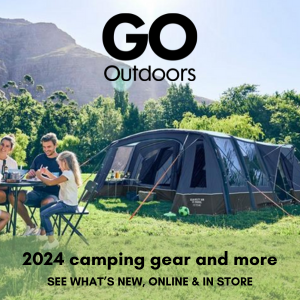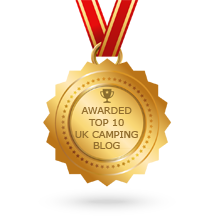CAMPING | New Study Reveals That Camping Really Does Make You Happy
It’s official: camping makes you happy! A new study shows camping and outdoor enjoyment is good for your mental health and well-being. Read on to find out more about the latest research from Liverpool John Moores University and Sheffield Hallam University.

A major new study has revealed how camping in the great outdoors improves people’s well-being and mental health.
The Outjoyment Report was commissioned by The Camping and Caravanning Club and undertaken by a team of academics at Liverpool John Moores University (LJMU) and Sheffield Hallam University. The study included a survey of nearly 11,000 campers and non-campers, assessing their attitudes towards the benefits of all types of camping such as pitching up in a tent, caravan or motorhome, or going glamping.
The report has been published 11 years after the ground-breaking Real Richness Report, also commissioned by the Club and researched by LJMU, which provides a comparison to findings from more than a decade ago.
Key findings from The Outjoyment Report discovered campers are:
- Happy: 97% of campers say happiness is their top motivator for going camping while 48% of campers reported feeling happy almost every day, compared with 35% of non-campers
- More connected to nature: 93% go camping to enjoy being in nature – the second highest motivator after happiness, and they score highly on measures of nature connection
- Enjoying better well-being: 93% of campers value camping for the benefits it gives to their health and well-being – an increase on the 85% of our Real Richness Report in 2011
- Flourishing: 44% are flourishing (have optimal mental health) compared with 31% of non-campers. This increases for those who camp more often
- Less stressed: 88% of campers are motivated to go camping to take time out of everyday life and have higher levels of psychological well-being than non-campers
- Active outdoors: 98% of campers take part in outdoor activities. 91% go walking, 39% cycle and 26% enjoy bird-watching.
Sabina Voysey, The Camping and Caravanning Club’s Director General, said: “The findings of The Outjoyment Report have never been so relevant as they are today. Camping in all its different forms puts us on the doorstep of the great outdoors and provides a clear pathway to a healthier and happier lifestyle – one in which people appreciate nature more and are active outdoors. Given the many negative events that have been happening in recent times at home and abroad, anything that helps people to feel better about themselves and each other is vitally important.”

Dr. Kaye Richards, Senior Lecturer in Psychology at Liverpool John Moores University, said: “Camping connects people – to the outdoors, to nature, to each other, and most importantly to themselves. Positive emotions generated from outdoor enjoyment help to alleviate everyday stressors and promote feelings of life satisfaction. It is no surprise then, that the more people camp the more this can improve happiness and well-being.”
Dr. Adele Doran, Principal Lecturer in Tourism Management at Sheffield Hallam University, added: “Campers really enjoy an outdoor lifestyle. They pursue a range of outdoor activities while camping, which fuels their sense of adventure, keeps them physically active and connects them to nature. In fact, campers are more connected to nature than non-campers.”
The Outjoyment Report also examined subjects such as the importance of children going camping as part of their formal education, and how survey respondents felt about healthcare professionals prescribing spending time in natural settings as a remedy for poor mental health.
83% of respondents felt positive about health professionals prescribing spending time in nature as an effective remedy for poor mental health, a significant rise from 58% in our previous study. And 94% believe children should learn outdoors while 93% think pupils should camp as part of their formal education – a big rise from the 59% of the 2011 report.
Sabina added: “Our vision is for a society in which camping and memorable outdoor experiences can play a full part in building a happier, healthier nation. Our goal is to raise the profile of camping and the countryside, and to urge policy-makers in government to harness the findings of our report to shape people’s outdoor enjoyment – especially through camping – as it will ultimately help to make them healthier and happier people.”
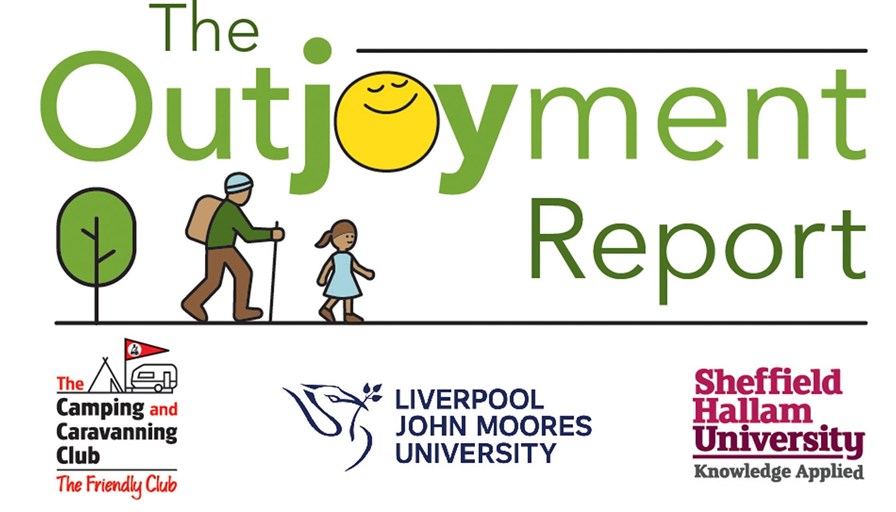
About The Outjoyment Report
The report was generated through two primary channels. Our experts carried out a literature review of existing academic research relating to camping or caravanning that has been published since 2010 in English, reviewing 1,166 articles and chapters from books.
This was accompanied by an in-depth survey of the views and attitudes of 10,992 campers and non-campers, which included using a set of internationally-recognised measures of well-being.
The data was then statistically analysed to identify where campers and non-campers might differ.
What’s in a word?
The word ‘outjoyment’ is a blend of outdoors and enjoyment and one we believe sums up our report perfectly. It’s also known as a portmanteau word just like glamping, brunch and Brexit.
Find out more about the Outjoyment Impact Report.
Where to next?
- WELLBEING | How to Get Your Nature Fix In The Depths Of Winter
- ACTIVE | Cold Water Winter ‘Polar’ Swimming – What’s It Really Like?
- WELLBEING | Our Alternative Run Up To Christmas – A Winter Solstice Meditation, Gong Bath & Mindfulness
- WELLBEING | Witches Whispers From Routin Brig Waterfall, Scotland - April 25, 2024
- TRAVEL | The Little Coffee Bag Co. Delicious Coffee On The Go – Review - April 16, 2024
- NEWS | Easy Glamping With Easy Camp New Moonlight Spire Tipi Tent - April 15, 2024







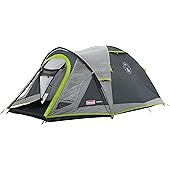


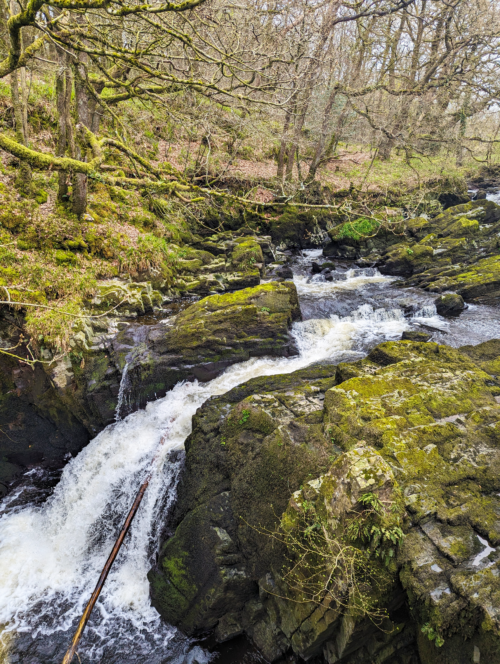
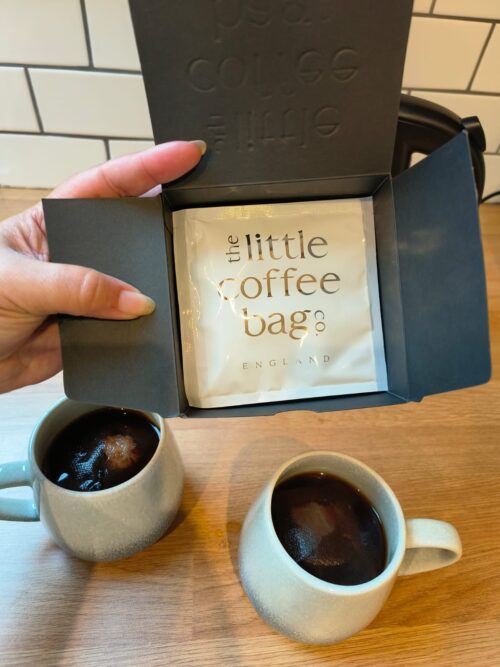



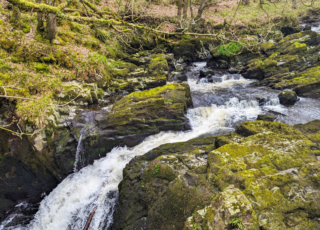

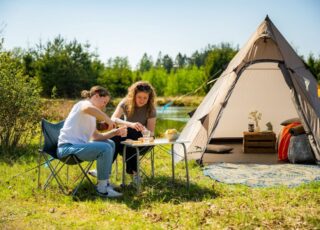

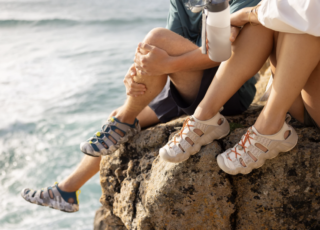
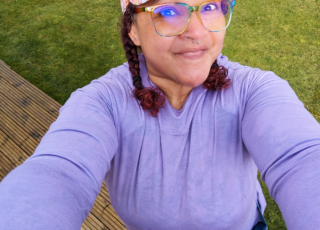
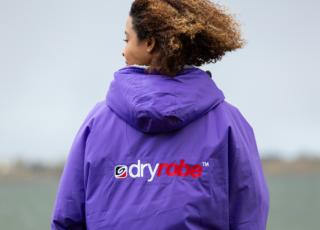
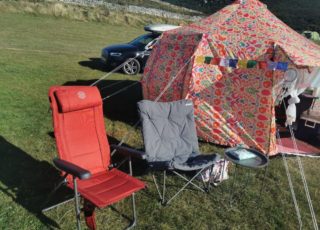
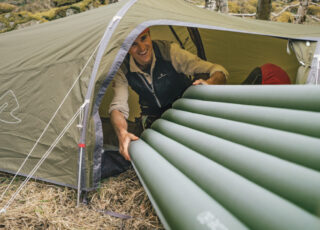
![CAMPING | Here’s How To Stay Warm In Your Tent – Warm Camping Tips [Updated 2024]](https://www.campingwithstyle.co.uk/wp-content/uploads/2024/02/shell0816_photorealistic_realistic_photo_of_the_inside_of_a_c_dd26c3c4-c779-4081-85b0-72e66a81b03b_1-320x230.png)

